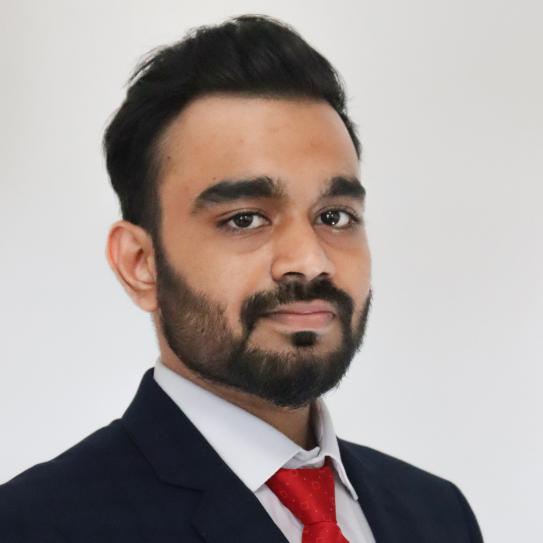
When Vishwajeetsinh Rahevar was an undergraduate at Nirma University, in his native India, his maternal grandfather was diagnosed with cancer. Vishwajeetsinh, who had always excelled in math and science, had chosen to major in mechanical engineering on the grounds that the discipline would allow him to solve important social problems. But here was a problem that seemed to be beyond the scope of even the most accomplished engineer.
That’s when he decided to delve into microfluidics — which deals with how fluids behave as they pass through small channels and the manufacture of miniaturized devices containing chambers and tunnels through which fluids can flow or remain confined. Specifically, he honed in on bio-microfluidics, focusing on creating lab-scale systems as tiny as a computer chip-devices that have come to be called “lab-on-a-chip.” Because his school did not have the facilities he needed for his research, he found internships at the Indian Institute of Technology, in Gandhinagar, and the Indian Institute of Technology, in Bombay, and at those institutions, he studied fluid dynamics and heat-transfer enhancement, blood-plasma separation, and other related topics.
Vishwajeetsinh graduated with a B.Tech. degree in mechanical engineering in 2020, fascinated by the idea that lab-on-a-chip technology could provide a way to bring effective and highly affordable early diagnostics to underresourced areas, such as those in rural India.
His interest led him to NYU Tandon and the Applied Micro-Bioengineering Labrun by Associate Professor Weiqiang Chen, who is appointed to the Department of Biomedical Engineering and the Department of Mechanical and Aerospace Engineering. Chen’s lab leverages engineering advances in microfluidics, lab-on-a-chip, and organ-on-a-chip systems, biomaterials, and biomanufacturing to create novel solutions for problems in cancer biology, immune engineering, tissue engineering, and stem cell-based regenerative medicine — perfectly dovetailing with Vishwajeetsinh’s interests.
Vishwajeetsinh made friends before even getting to Brooklyn by taking part in the remote NYU Tandon Made Challenge, which asked incoming students to team up to solve a pressing social need; his team won the challenge with Oncolock, a microfluidic device that enables the separation of circulating tumor cells from blood, mechano-typing to determine phenotypes and mutation characterization, all on one platform. (He later also performed well at the NYU Stern Entrepreneurs Challenge.)
While Vishwajeetsinh had initially thought that he might continue on to earn a Ph.D., an internship at the German-based company Sartorius — where he researched mRNA-based lipid nanoparticles (LNP) that could be used in novel drug-delivery methods and vaccines — convinced him to aim for an industry position after earning his master’s degree.
“Taking research quickly and directly from the lab bench to patient bedside is very gratifying to me,” he says. “I feel this is what I was born to do, and when I came to Tandon and began studying with Professor Chen the stars just aligned.”
Vishwajeetsinh — who served for a time as the chair of district and industry outreach for NYU’s student chapter of the American Society of Mechanical Engineers — earned his master’s degree in December 2022 and is now working as a senior research associate in LNP process science at Moderna, a Massachusetts-based company that focuses on RNA therapeutics. “I’m incredibly fortunate to have the chance to work in such an exciting and cutting-edge field, where I can make a real impact on people's lives through my work,” he says. “Thank you, NYU, for providing me with the tools, knowledge, and skills to succeed in the world. I will forever be grateful for the opportunities and experiences that you have given me.”

